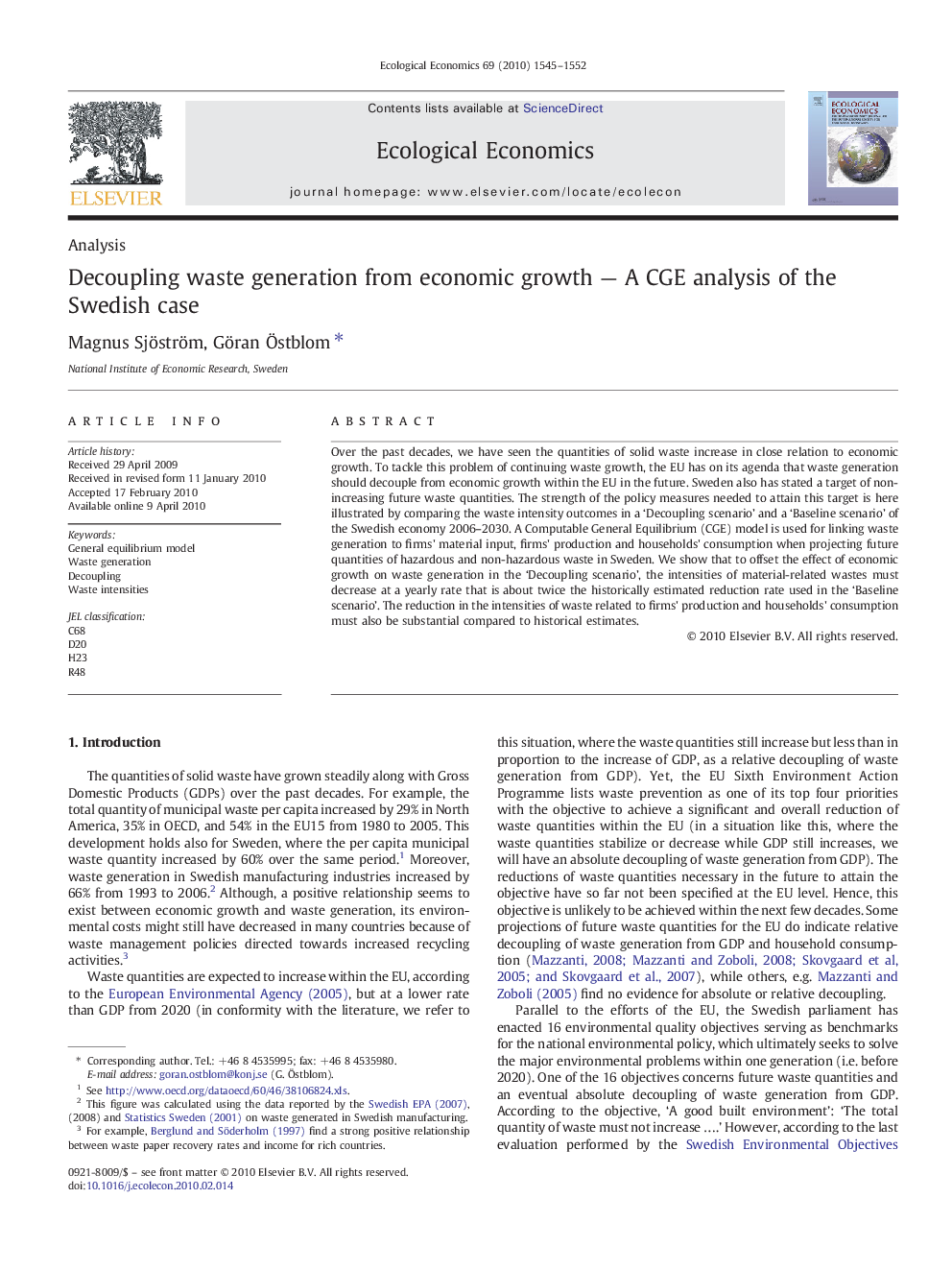| Article ID | Journal | Published Year | Pages | File Type |
|---|---|---|---|---|
| 5051074 | Ecological Economics | 2010 | 8 Pages |
Over the past decades, we have seen the quantities of solid waste increase in close relation to economic growth. To tackle this problem of continuing waste growth, the EU has on its agenda that waste generation should decouple from economic growth within the EU in the future. Sweden also has stated a target of non-increasing future waste quantities. The strength of the policy measures needed to attain this target is here illustrated by comparing the waste intensity outcomes in a 'Decoupling scenario' and a 'Baseline scenario' of the Swedish economy 2006-2030. A Computable General Equilibrium (CGE) model is used for linking waste generation to firms' material input, firms' production and households' consumption when projecting future quantities of hazardous and non-hazardous waste in Sweden. We show that to offset the effect of economic growth on waste generation in the 'Decoupling scenario', the intensities of material-related wastes must decrease at a yearly rate that is about twice the historically estimated reduction rate used in the 'Baseline scenario'. The reduction in the intensities of waste related to firms' production and households' consumption must also be substantial compared to historical estimates.
